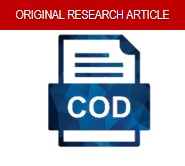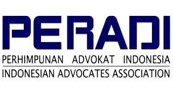Legal Protection For Consumers Against The Potential Harm Caused By Promotions Using Deepfakes
DOI:
https://doi.org/10.46924/jihk.v6i2.232Keywords:
Legal Protection, consumer, deepfakes, promotionAbstract
This research investigates the use of deepfakes in promotions and legal protection for consumers against potential harm caused by promotions using deepfakes. The use of deepfakes in promotions is a form of information manipulation that can potentially mislead consumers significantly. This research aims to determine the regulation of the use of deepfakes in promotions and whether the law can protect consumers against promotions that use deepfakes. This research uses a normative legal approach, analyzing legal principles and statutory regulations, especially those in the Consumer Protection Law and the Information and Electronic Transactions Law. The results of this research are that the Consumer Protection Law and the Information and Electronic Transactions Law can become a regulatory framework for using deepfakes in promotions. Legal protection for consumers can be carried out through two approaches, namely preventive legal protection and repressive legal protection
Downloads
References
Journals
Adiawaty, Susi. “Pengaruh Promosi Dan Citra Merek Terhadap Keputusan Pembelian Pada Aplikasi Market Place.” Judicious 3, no. 2 (2022): 370–73. https://doi.org/10.37010/jdc.v3i2.1298.
Alanazi, Sami. “Examining the Societal Impact and Legislative Requirements of Deepfakes Technology: A Comprehensive Study.” International Journal of Social Science and Humanity, 2024. https://doi.org/10.18178/ijssh.2024.14.2.1194.
Amelia, Shy S. “Strategi Komunikasi Pemasaran Sebagai Media Promosi Dalam Meningkatkan Penjualan Pada PT Tunas Jaya.” Technomedia Journal 8, no. 3 (2023): 1–13. https://doi.org/10.33050/tmj.v8i3.2087.
Erawati, Sherly Hesti, Novika Salsabila Amalia, Hanif Mauludin, and Yuyuk Liana. “Peran Brand Image Sebagai Moderator Celebrity Endorser Pada Keputusan Pembelian.” Akuntansi Bisnis & Manajemen ( ABM ) 30, no. 2 (October 31, 2023). https://doi.org/10.35606/jabm.v30i2.1276.
Fallis, Don. “The Epistemic Threat of Deepfakes.” Philosophy & Technology 34, no. 4 (2020): 623–43. https://doi.org/10.1007/s13347-020-00419-2.
Gong, Dafeng. “Deepfakes Forensics, an AI-Synthesized Detection With Deep Convolutional Generative Adversarial Networks.” International Journal of Advanced Trends in Computer Science and Engineering 9, no. 3 (2020): 2861–70. https://doi.org/10.30534/ijatcse/2020/58932020.
Gu, Junlin. “Exploiting Deepfakes by Analyzing Temporal Feature Inconsistency.” International Journal of Advanced Computer Science and Applications 14, no. 12 (2023). https://doi.org/10.14569/ijacsa.2023.0141291.
Hadi, Wildan J, Suhad M Kadhem, and Ayad R Abbas. “A Survey of Deepfakes in Terms of Deep Learning and Multimedia Forensics.” International Journal of Electrical and Computer Engineering (Ijece) 12, no. 4 (2022): 4408. https://doi.org/10.11591/ijece.v12i4.pp4408-4414.
Halimah, Siti N, Finta Amalinda, and Ayu Lestari. “Strategi Pemasaran Jasa Pelayanan Kesehatan Di UPTD Puskesmas Mamboro.” Jurnal Kolaboratif Sains 5, no. 11 (2022): 763–66. https://doi.org/10.56338/jks.v5i11.2975.
Julyanti, Dwi. “Analisis AIDA Pada Program Kalbis Library Quiz Sebagai Media Promosi Perpustakaan Kalbis Institute Melalui Instagram.” Jfppti, 2022, 11–17. https://doi.org/10.59239/jfppti.v1i1.1.
Kawa, Piotr. “A Note on Deepfakes Detection With Low-Resources,” 2020. https://doi.org/10.48550/arxiv.2006.05183.
Li, Shengyin, Vibekananda Dutta, Xiaoli He, and Takafumi Matsumaru. “Deep Learning Based One-Class Detection System for Fake Faces Generated by GAN Network.” Sensors 22, no. 20 (2022): 7767. https://doi.org/10.3390/s22207767.
Liu, Min, and Xijin Zhang. “Deepfakes Technology and Current Legal Status of It,” 2023, 1308–14. https://doi.org/10.2991/978-94-6463-040-4_194.
López-Gil, Juan-Miguel, Rosa Gil, and Roberto Garcı́a. “Do Deepfakes Adequately Display Emotions? A Study on Deepfakes Facial Emotion Expression.” Computational Intelligence and Neuroscience 2022 (2022): 1–12. https://doi.org/10.1155/2022/1332122.
Mubarak, Rami. “A Survey on the Detection and Impacts of Deepfakes in Visual, Audio, and Textual Formats.” Ieee Access 11 (2023): 144497–529. https://doi.org/10.1109/access.2023.3344653.
Mufidah, Belva R. “Analisis Promo E-Wallet Terhadap Perilaku Konsumtif Pada Mahasiswa Institut Teknologi Sepuluh Nopember.” Jurnal Riset Bisnis Dan Investasi 9, no. 2 (2023): 78–87. https://doi.org/10.35313/jrbi.v9i2.4715.
Mukta, Md. S H, Jubaer Ahmad, Mohaimenul A K Raiaan, Salekul Islam, Sami Azam, Mohammed E Ali, and Mirjam Jonkman. “An Investigation of the Effectiveness of Deepfakes Models and Tools.” Journal of Sensor and Actuator Networks 12, no. 4 (2023): 61. https://doi.org/10.3390/jsan12040061.
Murphy, Gillian. “Face/Off: Changing the Face of Movies With Deepfakes.” Plos One 18, no. 7 (2023): e0287503. https://doi.org/10.1371/journal.pone.0287503.
Nugraha, Yama Aditya, and Umaimah Wahid. “New Wave Marketing Dalam Membangun Brand Equity Di Era Digital.” Jurnal Ilmu Komunikasi 16, no. 2 (May 1, 2018): 158. https://doi.org/10.31315/jik.v16i2.3005.
Pino, Samuele. “What’s Wrong With This Video? Comparing Explainers for Deepfakes Detection,” 2021. https://doi.org/10.48550/arxiv.2105.05902.
Puspitarini, Dinda S, and Reni Nuraeni. “Pemanfaatan Media Sosial Sebagai Media Promosi.” Jurnal Common 3, no. 1 (2019): 71–80. https://doi.org/10.34010/common.v3i1.1950.
Rani, Sonam, Sailaja Bohara, Gaurav Gupta, Mandakini Paruthi, and Shiv Ranjan. “Shaping Consumer Perception Through Deepfakes Marketing,” 2024, 123–42. https://doi.org/10.4018/979-8-3693-6890-9.ch006.
Rizky, M A. “Pengaruh Promosi Terhadap Peningkatan Jumlah Nasabah Pada PT. Bank Pembiayaan Rakyat Syariah Al-Falah Banyuasin.” Jurnal Ilmiah Mahasiswa Perbankan Syariah (Jimpa) 3, no. 2 (2023): 249–60. https://doi.org/10.36908/jimpa.v3i2.230.
Saputra, Joko E. “Sistem Pemasaran Produk Hotel Pada Media Social Instagram Terhadap Minat Kunjungan Hotel Aryaduta Semanggi,Jakarta Selatan.” Jempper 1, no. 3 (2022): 323–31. https://doi.org/10.55606/jempper.v1i3.493.
Shen, Dongyao, Youjian Zhao, and Chengbin Quan. “Identity-Referenced Deepfakes Detection With Contrastive Learning,” 2022, 27–32. https://doi.org/10.1145/3531536.3532964.
Syarifah, Ina. “Pengaruh Soft Selling Dalam Media Sosial Instagram Dan Celebrity Endorse Terhadap Keputusan Pembelian.” Jurnal Bisnis Dan Kajian Strategi Manajemen 6, no. 1 (2022).
Trinh, Loc, Michael Tsang, Sirisha Rambhatla, and Yan Liu. “Interpretable and Trustworthy Deepfakes Detection via Dynamic Prototypes,” 2020. https://doi.org/10.48550/arxiv.2006.15473.
Twomey, John. “Do Deepfakes Videos Undermine Our Epistemic Trust? A Thematic Analysis of Tweets That Discuss Deepfakes in the Russian Invasion of Ukraine.” Plos One 18, no. 10 (2023): e0291668. https://doi.org/10.1371/journal.pone.0291668.
Vasist, Pramukh N, and Satish Krishnan. “Engaging With Deepfakes: A Meta-Synthesis From the Perspective of Social Shaping of Technology Theory.” Internet Research 33, no. 5 (2022): 1670–1726. https://doi.org/10.1108/intr-06-2022-0465.
Venkateswarulu, Sunkari. “DeepExplain: Enhancing Deepfakes Detection Through Transparent and Explainable AI Model.” Informatica 48, no. 8 (2024). https://doi.org/10.31449/inf.v48i8.5792.
Whittaker, Lucas, Kate Letheren, and Rory Mulcahy. “The Rise of Deepfakes: A Conceptual Framework and Research Agenda for Marketing.” Australasian Marketing Journal (Amj) 29, no. 3 (2021): 204–14. https://doi.org/10.1177/1839334921999479.
Proceedings
Al-Khazraji, Samer H. “Impact of Deepfakes Technology on Social Media: Detection, Misinformation and Societal Implications.” The Eurasia Proceedings of Science Technology Engineering and Mathematics 23 (2023): 429–41. https://doi.org/10.55549/epstem.1371792.
Website
Vida. “Deepfakes: Pedang Bermata Dua Bagi Konsumen Dan Bisnis Digital,” 2024. https://vida.id/id/blog/deepfakes-pedang-bermata-dua-bagi-konsumen-dan-bisnis-digital.
Zholudev, Vyacheslav. “Deepfakes Cases Surge in Countries Holding 2024 Elections, Sumsub Research Shows,” 2024. https://sumsub.com/newsroom/deepfakes-cases-surge-in-countries-holding-2024-elections-sumsub-research-shows/.
Downloads
Published
Issue
Section
License
Copyright (c) 2025 Ali Huristak Hartawan Hasibuan, David Novan Setyawan, Yanuriansyah Ar Rasyid

This work is licensed under a Creative Commons Attribution 4.0 International License.
Authors who publish with this journal agree to the following terms:
- Copyright on any article is retained by the author(s).
- The author grants the journal, the right of first publication with the work simultaneously licensed under a Creative Commons Attribution License that allows others to share the work with an acknowledgment of the work’s authorship and initial publication in this journal.
- Authors are able to enter into separate, additional contractual arrangements for the non-exclusive distribution of the journal’s published version of the work (e.g., post it to an institutional repository or publish it in a book), with an acknowledgment of its initial publication in this journal.
- Authors are permitted and encouraged to post their work online (e.g., in institutional repositories or on their website) prior to and during the submission process, as it can lead to productive exchanges, as well as earlier and greater citation of published work.
- The article and any associated published material is distributed under the Creative Commons Attribution 4.0 International License



 Sinta ID:
Sinta ID: 


















